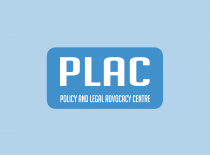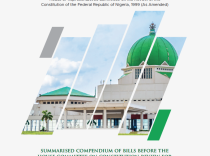The Senate has rejected the Interim report of its Committee on Petroleum Resources (Downstream) on the fuel crisis across the country and mandated that the Committee further review its report.
Presenting the report at the plenary session of Wednesday, 17 January 2018, the Chairman of the Committee, Sen. Kabir Marafa (APC: Zamfara) informed Members of the Senate that the Committee had adopted strategies that would establish and identify the immediate and remote causes of the fuel crisis; examine and investigate the current scheme of importing petroleum products into the country’s Direct Sale Direct Purchase (DSDP) and determine the short and long term possible solution to forestall future occurrence of fuel scarcity in the country.
Sen. Marafa mentioned that the Committee had conducted an interactive session with the Hon. Minister of State for Petroleum, Group Managing Director, Nigerian National Petroleum Cooperation (NNPC), Director, Department of Petroleum Resources (DPR) and other relevant stakeholders during which it observed that the scarcity of fuel was as a result of:
- Massive smuggling of petroleum products across the borders;
- Non- functional refineries despite huge investments in their repairs and;
- Withdrawal of marketers from the importation process due to the increase in the international cost of fuel, occasioned by rising crude oil prices.
Following the aforementioned observations, the Committee requested the Senate’s approval on the following recommended measures:
- That the Federal Government should consider granting special foreign exchange concession to oil marketers to enable them commence importation of fuel and sell at the approved cost of N145 per litre.
- That the Federal Government should consider a partial deregulation of petroleum products to allow marketers import and sell these products at their own price, while the NNPC mega stations sell at the approved cost of N145 per litre.
- Unbundling the NNPC through the Petroleum Industry Bills should be considered, as it would reposition the agency for better service delivery and promote private sector participation in the Industry.
However, the Senate rejected the report of the Committee stating that it failed to address the issue of fuel subsidy and make a comparison of the volume of fuel imported into the country against the volumes consumed. The Committee has been mandated to include these raised concerns in its report.
Click here to view the full report of the Committee




